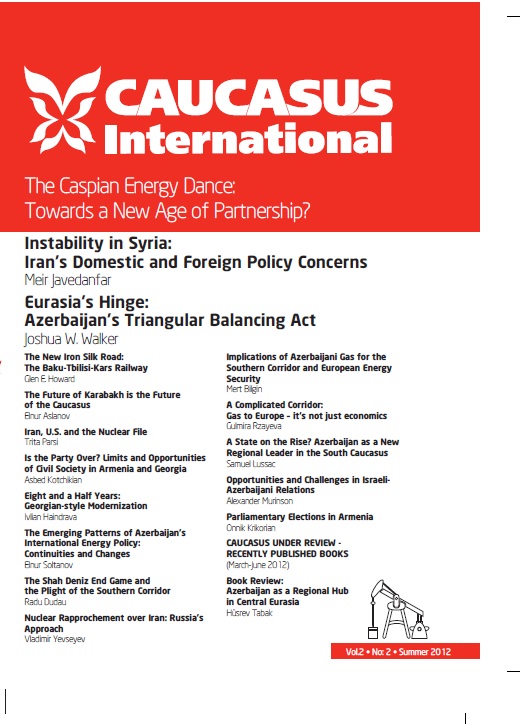The New Iron Silk Road: The Baku-Tbilisi-Kars Railway
The article examines the role of the railways in the transforming landscape of Eurasia, and argues that the Baku-Tbilisi-Kars (BTK) railway, which has a projected completion date of 2013, symbolically illustrates the end of Russia’s traditional domination of railway transportation in the Caucasus. Pursuant to this, the author argues that for Azerbaijan, the BTK railway connecting Georgia, Azerbaijan and Turkey as part of a future Caucasus common market will solidify Baku’s importance as a Caspian trade hub, and strengthen its relations with Central Asian countries. Further, the author emphasizes that the BTK railway has attracted the interest of Central Asian states interested in using the Baku railhead as an “iron gateway” for the export of their commodities and products destined for European markets. Of these, Kazakhstan is taking the biggest steps to enhance its own energy export economy, and is interested in the project serving as a trans-Caspian linkup for its oil exports. The railway will provide Kazakhstan with direct access to the European Union for its oil and agricultural exports for the first time.
Latest news
- 03/17/2020 Call for Submission: “Non-Alignment Movement and Its Perspective in International Affairs”. Deadline: 1 July 2020 2626 views
Popular articles
- 02/24/2020 The Role of Irredentism in Russia’s Foreign Policy 2536 views
- 02/24/2020 Construction of sub-national identity vis-à-vis parent state: Gagauz case in Moldova 2218 views
- 02/24/2020 The Conflict in Ukraine - The Geopolitics of Separatism and Divergent Identities (Commentary) 2073 views
- 02/24/2020 The Role of the Soviet Past in Contemporary Georgia 2044 views





